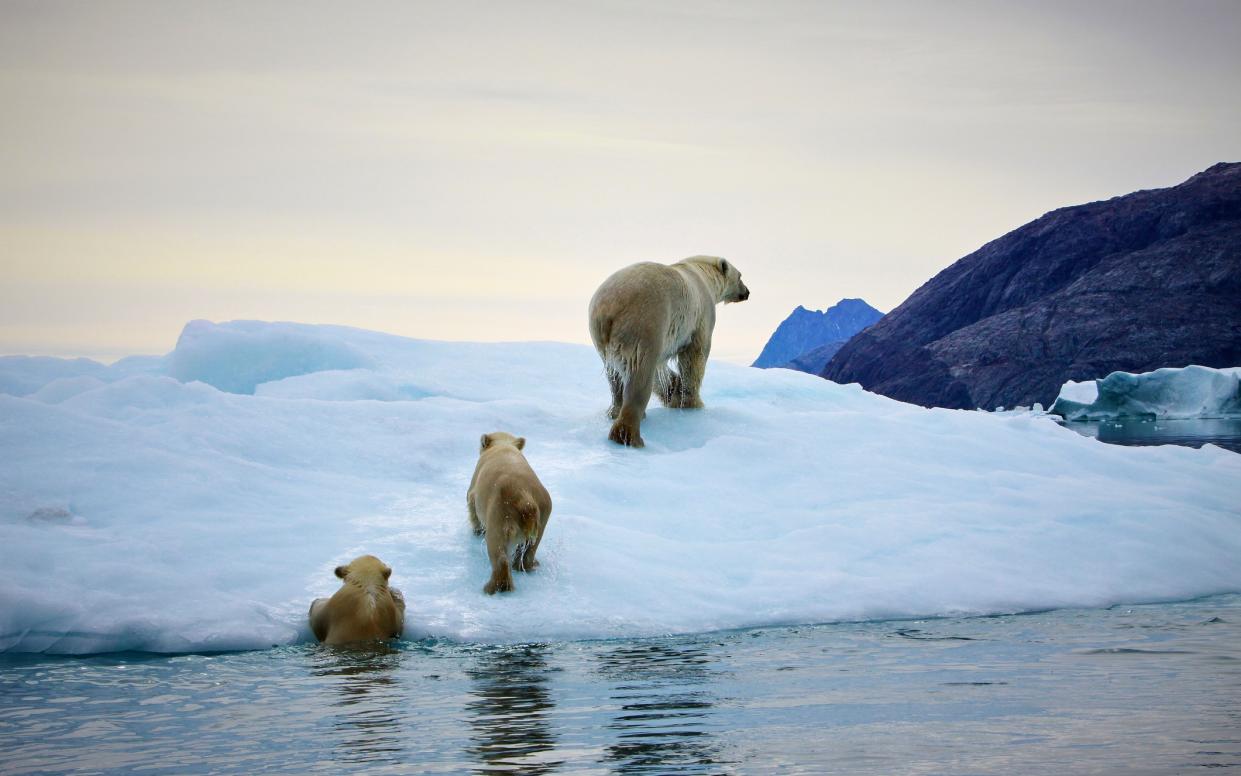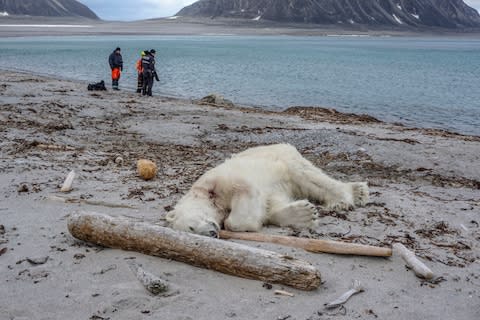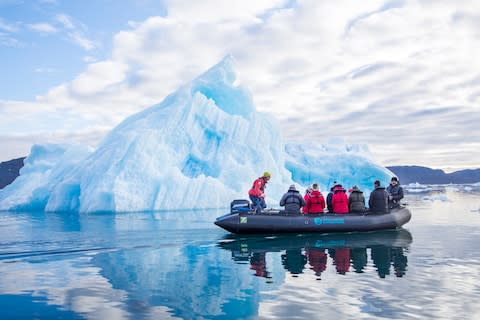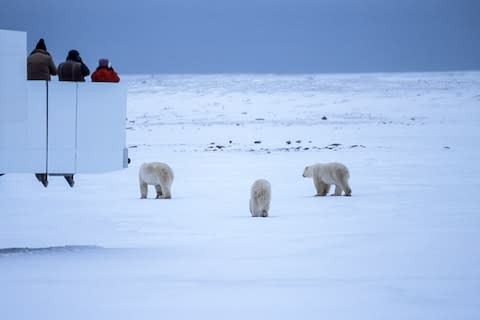Why Arctic ecotourism should be allowed to flourish – despite the tragic shooting of a polar bear

The image was shocking, and the response entirely predictable. The sight of a polar bear lying stricken on a beach, blood matting the fur of its neck, with one huge paw folded under its body as it crumpled into the sand in its final, desperate moments, created an immediate global backlash. By the shore in the background stand a group of guides talking, one of them with a rifle slung casually over his shoulder, further enhancing the harrowing impression of human disdain. The perception was that of complete disregard for the bear and the environment in which it lived. The reality is considerably more complex.

This powerful image has thrown into question the entire rationale of this kind of tourism, or ecotourism, the term more frequently used. Should we be in these environments at all? Are there regions in the world where nature should be left completely untouched? Does our proximity to large animals in the wild, frequently fuelled by a desire for sensational images – trophy hunting with a camera – lead to such animals becoming conditioned to human contact? If that is the case, surely there is only one side that will end up paying the ultimate price for such proximity.
"Let's get too close to a polar bear in its natural environment and then kill it if it gets too close". Morons. https://t.co/FEPt0sYOtF
— Ricky Gervais (@rickygervais) July 29, 2018
Before addressing these questions, let’s first consider the incident that has created a wave of global soul-searching. For me, this has struck particularly close to home – I have recently returned from a trip to Svalbard, and indeed stood two weeks ago on the very beach where the bear was shot. There is no doubt that the death of this polar bear will be investigated – and if necessary prosecuted – with the full weight of Norwegian law. This is not something that is taken lightly.
To put it simply, this should never have happened and is the result of a catastrophic systemic failure. Was the beach examined from a vessel offshore beforehand? Did a party of guides go ashore first to recce the area before their clients were landed? Were the clients themselves closely supervised to prevent one becoming isolated? Was there access to flares and thunderflashes to scare off a bear that appeared suddenly? These are standard measures for any respected operator, and for a bear to be gunned down as it mauls a guide indicates that somewhere along the line there was a disastrous failure in protocol.
14 amazing wildlife holidays on UK shores
But the incident and the image should not be used to condemn the concept of ecotourism wholesale. For in its best form, this kind of travel has very little impact (there is no such thing as “zero-impact” tourism), or indeed has a positive effect, on the environments in which it takes place. This can be by making financial donations to conservation groups, providing income to local communities, or ensuring protection of certain areas or animals due to their ability to generate revenue for a district or nation. In the case of Svalbard, visitors often become ambassadors for the endangered polar bear, increasing awareness of the fact that the far greater danger facing them is the recession of ice in the Arctic Sea.
When ecotourism is conducted correctly, the benefits are direct, immediate and long lasting. But what do we mean by “correctly”? Let’s consider again the killing of the polar bear.
The vast majority of cruise operators in Svalbard are members of AECO – the Association of Arctic Expedition Cruise Operators. This requires adherence to a strict code of practice that ensures the safety of not just the tourists involved, but also the animals they encounter. Members also donate and directly contribute (through data collection, financial contributions, and hosting scientists on their cruises) to the study and conservation of the regions in which they operate. Significantly, the tour operator involved in this incident was not signed up to AECO.

And so the emphasis switches to us, that uniquely modern traveller that is the ecotourist. It is incumbent on us when we book our adventure of a lifetime to check that our operator is indeed registered to an accredited organisation, one with genuine credentials in terms of conservation and responsible travel. In doing so we are therefore assured of not only decreasing our impact on the delicate environments that we have the privilege of visiting, but also genuinely contributing to their protection.

Simply closing off these regions on the margins of conventional travel is not the answer – ecotourism is here to stay, an expanding market that brings benefits as well as challenges to the regions around the world in which it operates. The key is responsibility and research before booking – a minute online that can avert catastrophic damage to the places where a new breed of tourist seeks to tread. Don’t give up on your wanderlust just yet.

